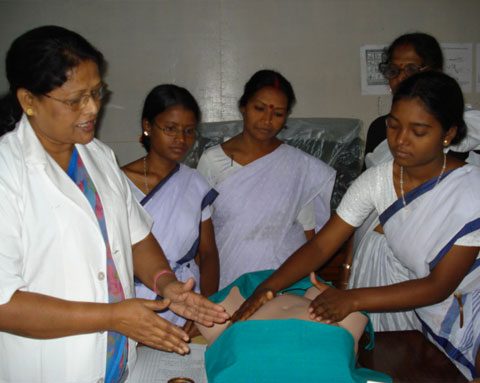Laxmi (name changed) had her partial Anti Natal Care (ANC) checkups done. Her haemoglobin level was checked and was 8.7 during her last ANC, her urine was checked for sugar and Albumin level, she received her TT injections and consumed 100 IFA tablets, but her blood pressure was never recorded. She had only 2 ANC and her Mother Child Protection card was not properly filled. During her labour, she was referred to the Sub divisional hospital in Cooch Bihar, West Bengal which is in another state and very far from her residence. She was from an economically poor family so could not afford services from the local private hospital. The inter facility transport was not available for her referral. She somehow managed to reach the Sub divisional hospital. Seeing her situation, the Obstetrics and Gynaecology department admitted her immediately in the hospital, despite the SHD being a high caseload facility. Although she received all the immediate care, she was not informed about the procedures when they were undertaken. She delivered a healthy baby and there was no out-of-pocket expense.
However, because of overcrowding she and her newborn shared the postpartum bed with another mother and newborn. The toilets were over used and not cleaned frequently enough so were very dirty. She shared with the WRA member that she received transport to return home, free medicines and care at facility and stayed for 48 hours after birth. She did not receive any Family Planning counseling or method during pregnancy and did not accept a method at the hospital. She does not know about the INR 1400 she is entitled to under the Janani Surakhsha Yojana although she has a bank account. Despite problems that she faced at the referral facility and incomplete antenatal care, she is satisfied with the overall quality of care. She feels poor women like her will not be able to bring change and improve services.


